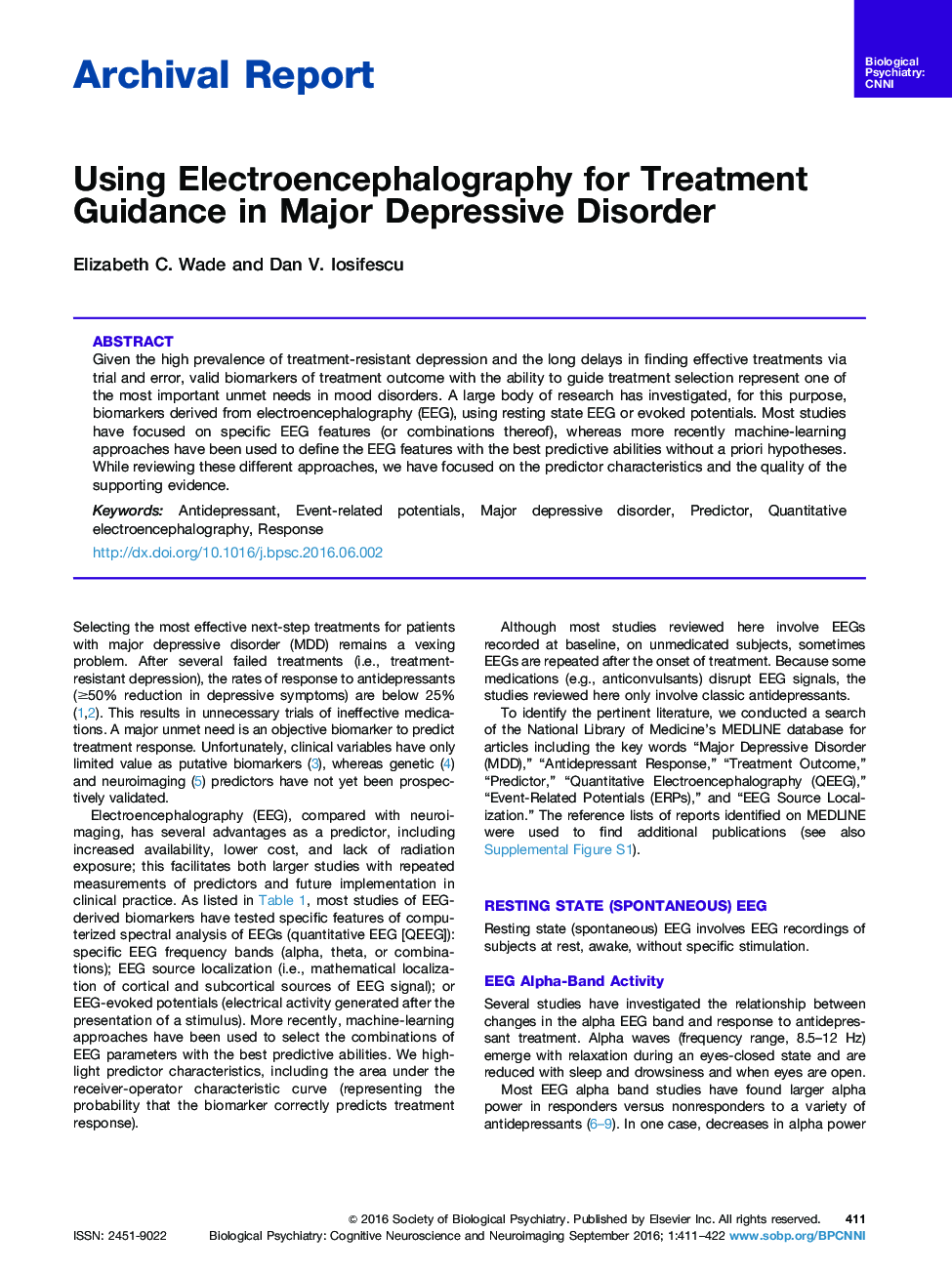| Article ID | Journal | Published Year | Pages | File Type |
|---|---|---|---|---|
| 5721140 | Biological Psychiatry: Cognitive Neuroscience and Neuroimaging | 2016 | 12 Pages |
Given the high prevalence of treatment-resistant depression and the long delays in finding effective treatments via trial and error, valid biomarkers of treatment outcome with the ability to guide treatment selection represent one of the most important unmet needs in mood disorders. A large body of research has investigated, for this purpose, biomarkers derived from electroencephalography (EEG), using resting state EEG or evoked potentials. Most studies have focused on specific EEG features (or combinations thereof), whereas more recently machine-learning approaches have been used to define the EEG features with the best predictive abilities without a priori hypotheses. While reviewing these different approaches, we have focused on the predictor characteristics and the quality of the supporting evidence.
